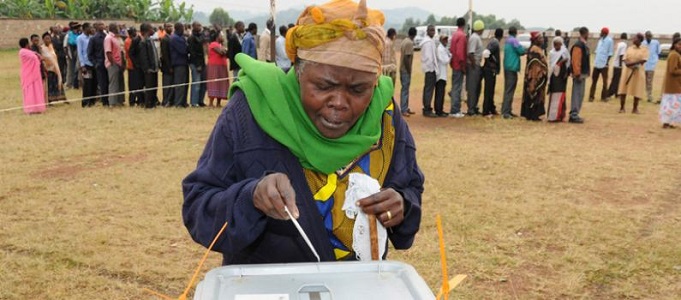Social networking site Facebook has revealed plans to control the spread of fake news on its platforms ahead of many elections across Africa.
At least 20 African nations will this year hold presidential, parliamentary and local council elections. They include Nigeria, Tunisia, Mauritania, Guinea, Cameroon, Mali, Ghana and Niger.
Mr Akua Gyekye, Facebook’s Public Policy Manager for Africa Elections, said the company has committed resources to the cause through partnering with other international media organizations such as AFP and boosting digital literacy in different African countries.
“We want to stop the spread of false news on our platforms. That’s why we’ve teamed up with local third-party fact-checkers across South Africa, Nigeria, Kenya, Cameroon and Senegal — including Africa Check (Africa’s first independent fact-checking organization), AFP, Pesa Check (a local Kenyan fact-checking organization) and Dubawa (a local Nigerian fact-checking organization),” Gwekye said in a statement released on Wednesday.
Akua Gyekye adds: “These independent groups help us assess the accuracy of news shared on Facebook, and when they determine content is false, we reduce its distribution in News Feed so fewer people see it. We also show related articles from fact-checkers for more context and notify users if a story they have shared is rated as false. Additionally, in Nigeria, WhatsApp has worked with Africa Check and CrossCheck Nigeria to let users send questions about potential rumors they have received through the platform.”
He said Facebook is helping to build informed and civically engaged communities central to their work around elections.
“In Nigeria, we’ve rolled out new options in English & Hausa so people can report posts that contain incorrect election information, encourage violence or otherwise violate our Community Standards. On Election Day, we’ll show a voting day reminder in English and Hausa at the top of Facebook’s News Feed,” Akua Gwekye added.
In another strategy, Facebook is making political adverts more transparent.
“Earlier this month, we began temporarily expanding enforcement and not accepting foreign election ads on Facebook in Nigeria to help prevent foreign interference. Already today you can see any ad that a Page is running on Facebook, regardless if it’s shown to you,” he said.
Facebook also says it will continue to educate media groups and journalists across the country on best practices for sharing content on our platforms and online safety.
Must read: Global smartphone maker OPPO enters Africa market
The company has also created partnerships with NGOs and Civil Society across many African countries.
“These local partners have been instrumental in giving us feedback that we’ve incorporated into our policies and programs, including the aforementioned trainings with teens and journalists,” Facebook says.
The company also says it is connecting with political parties about security.
“We’ve trained parties, campaigns and candidates on security best practices, including how to turn on two-factor authentication and how to avoid common threats online. For the Nigerian elections, we’ve trained vice presidential candidates, senatorial candidates and top advisors from over 35 major political parties — and the information included in these trainings is all available for anyone to access at politics.FB.com.”
Related:
Nancy Kacungira scores new show on BBC
Facebook partners with Vodafone for Express Wi-Fi in Ghana

